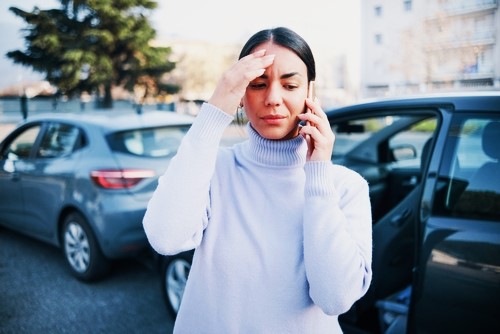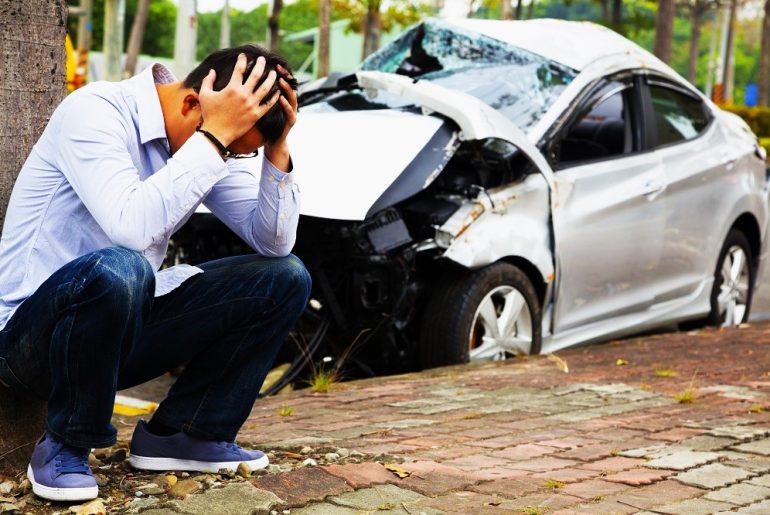When an accident occurs while someone else is driving your vehicle, who is held accountable and to what extent can vary. It hinges on the circumstances of the crash, including the cause and the driven by someone . Additionally, the specifics of your car insurance policy play a crucial role in determining liability.
For instance, your level of responsibility can differ significantly if your vehicle was taken without permission compared to a scenario where you allowed an unreliable person to use it.
Who is liable if the other driver causes a car accident?
When someone else is driving your car and another driver causes an accident, the primary liability typically falls on the driver who caused the accident. In such cases, the at-fault driver’s insurance is responsible for covering the damages, which include:
- Property Damage: The costs for repairs or replacement of your car.
- Legal Damages: Any injuries or other damages suffered by the person driving your car.
It’s important to note, however, that even though the other driver’s insurance should cover the damages, your own auto insurance rates may still increase. Insurance companies might view lending your car to someone else as an increase in risk and adjust your premiums accordingly, despite you not being at fault for the accident. This is a common practice among insurers, reflecting their assessment of policyholders’ risk profiles based on the entirety of their driving and car loaning history.
What if someone else drove my car and caused the crash?
If an accident is caused while your car is driven by someone else, your liability and the insurance implications hinge on your policy’s terms and whether you had authorized the driver to use your car. Typically, auto insurance policies cover the vehicle, which means the policy’s liability coverage might extend to any permitted driver. The specifics of your insurance policy play a crucial role in this situation.
However, coverage exceptions may apply based on whether the driver had your consent to use the vehicle. These nuances underscore the importance of consulting a car accident attorney to navigate potential legal complexities and protect your interests in the event of a personal injury claim.

Permissive use
Under the “permissive use” doctrine, if you allow someone to use your vehicle and they cause an accident, your auto insurance typically covers the damages up to its limit as the primary coverage. After your insurance limits are reached, the driver’s own insurance may cover any additional costs as secondary coverage, potentially preventing the driver from having to pay out of pocket.
This system helps ensure victims receive compensation while also protecting the driver from personal liability. However, it’s important to note that allowing someone to use your car could result in higher insurance premiums for you, as insurers may view the act of loaning your car as increasing your risk profile.
A crucial exception exists: if you negligently permit someone (known to be an unsafe driver or unlicensed, for example) to use your car, you could be held directly liable for any damages caused by their negligence.
Non-permissive use
In situations of non-permissive use, where someone drives your car without your explicit permission, the liability dynamics shift significantly. This scenario can unfold in two main ways:
- someone, often a friend or a family member, borrows your car without asking for it first, or
- someone steals your vehicle with the intent of depriving you of it forever.
Under these circumstances, the person driving your car bears the responsibility for any accidents they cause, not you as the car owner. Consequently, any insurance claims for damages would typically be directed towards the at-fault driver’s insurance, not yours.
However, complications arise when the non-permitted driver lacks insurance, especially in cases of vehicle theft. Victims may then have to rely on their own uninsured motorist coverage. Unfortunately, in such cases, victims might not fully recover compensation and are still obligated to pay their insurance deductible.
An important caveat exists in some jurisdictions, like California, where car owners can be held liable for accidents if it’s determined they negligently enabled the theft of their car, such as leaving keys in the ignition.
The distinction between a stolen vehicle and one “borrowed” without permission can also blur, particularly from the perspective of insurance companies and legal systems, which may default to assuming permission was given. This assumption can be challenging to counter, underscoring the value of legal representation from a skilled car accident attorney to navigate these disputes and support your claim of non-permissive use.
What if I let someone use my car when they don’t have to drive?
If you permit a friend or someone to use your car under circumstances where they are not fit to drive, such as being intoxicated or otherwise impaired, this could fall under the legal concept of “negligent entrustment.” In these instances, you might be held responsible for any damages resulting from an accident caused by the person you allowed to drive your vehicle. This is because, by giving them access to your car, you’ve effectively enabled a situation where harm could occur due to their known inability to drive safely.
Negligent entrustment examples include allowing someone who is:
- Too young to drive,
- Intoxicated or under the influence of drugs,
- Known to have lost their driving privileges due to unsafe driving practices,
- Suffering from a medical condition that impairs their ability to drive safely, like severe dementia.
In such scenarios, your auto insurance may not cover the damages stemming from the accident since the driver was permitted to use the vehicle under risky conditions. Moreover, you could be held directly liable for any injuries or property damage that ensues.
Additionally, some jurisdictions criminalize the act of negligently entrusting your vehicle to a high-risk individual. For instance, in California, it’s considered a misdemeanor to knowingly allow a minor to drive your car if they’re intoxicated or have a history of specific vehicle-related offenses, highlighting the seriousness with which the law regards the responsible use of motor vehicles.
